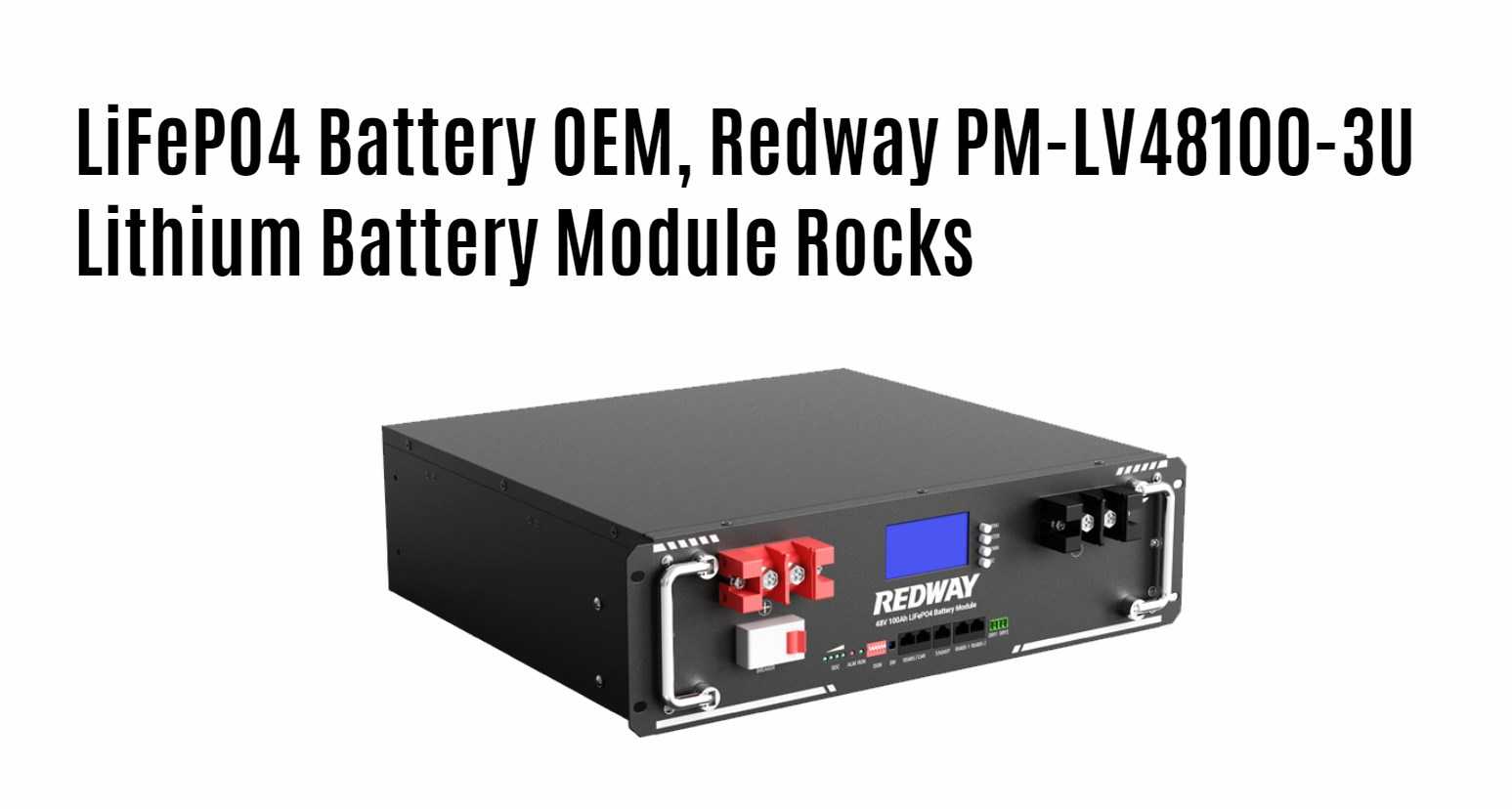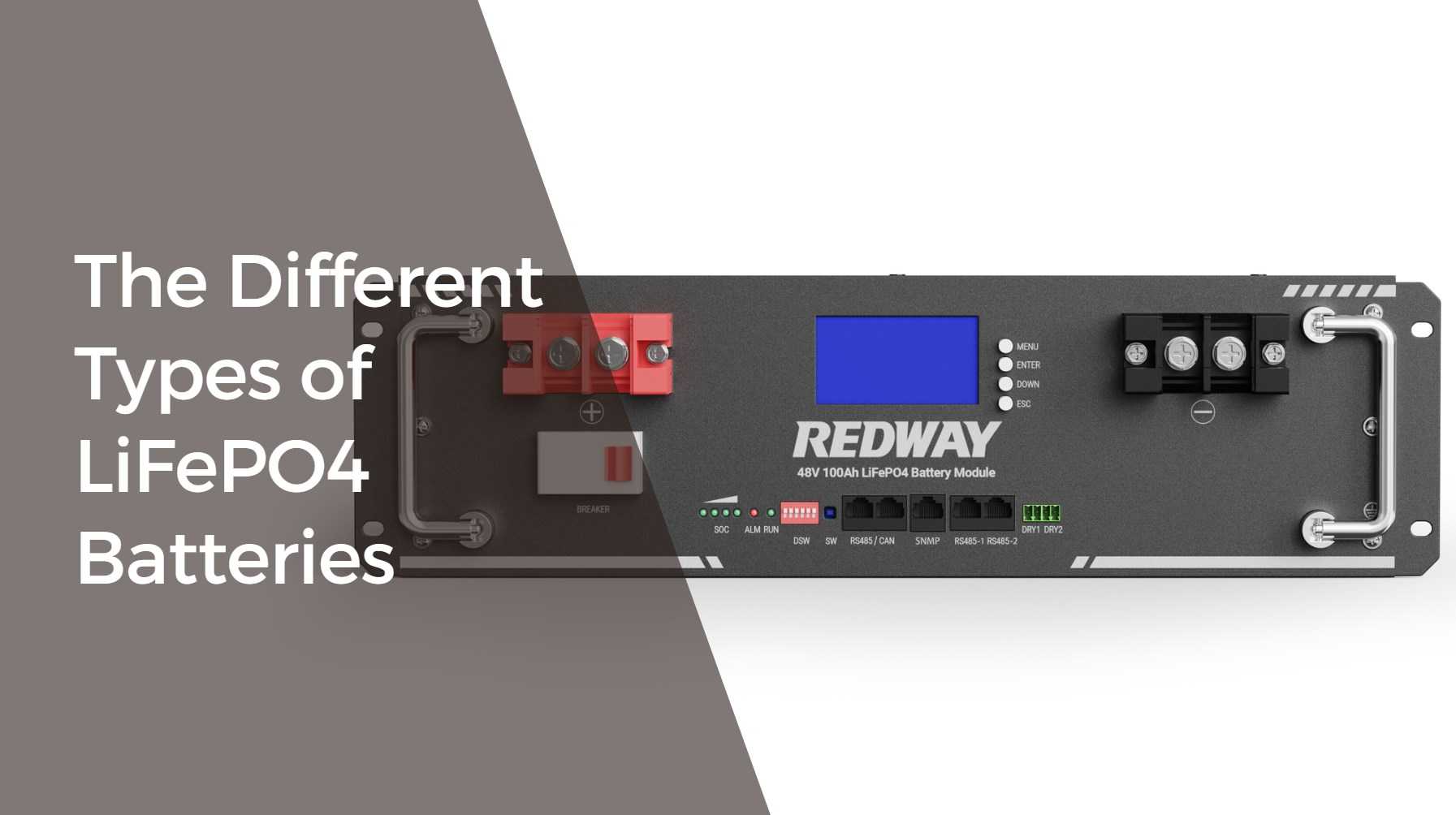Discover LiFePO4 batteries – lightweight, durable, and long-lasting. Perfect for electric vehicles, solar energy storage, marine applications, outdoor activities, and backup power. Explore types, pros and cons, best uses, and how to choose the right one. Learn about top-performing Redway PM-LV48100-3U Lithium Battery Module. Get powered up with LiFePO4 technology!
What is a LiFePO4 Battery?
-
LiFePO4 Battery: A LiFePO4 battery, also known as a lithium iron phosphate battery, is a type of rechargeable lithium-ion battery. It utilizes lithium iron phosphate as the cathode material and a graphitic carbon electrode with a metallic backing as the anode.
-
Safety and Long Lifespan: LiFePO4 batteries are known for their safety features and long lifespan. They offer reliable and stable power storage, making them suitable for various applications.
-
Environmentally Conscious: LiFePO4 batteries are considered environmentally conscious due to their non-toxic nature and the absence of rare earth metals. This makes them a sustainable choice for power storage.
Compared to traditional lead-acid batteries, LiFePO4 batteries offer numerous advantages such as higher efficiency, faster charging times, longer cycle life and lower environmental impact. Plus, they are much lighter in weight and more compact in size.
One thing to note about LiFePO4 batteries is that they require special chargers designed specifically for this type of battery chemistry. Using an incompatible charger can damage the battery or even cause it to explode.
Wholesale lithium golf cart batteries with 10-year life? Check here.
LiFePO4 batteries are a superior choice over other types of rechargeable batteries due to their reliability and many benefits.
The Different Types of LiFePO4 Batteries
-
Cylindrical LiFePO4 Batteries: Cylindrical LiFePO4 batteries have a cylindrical shape and are known for their high power capabilities. They are commonly used in applications that require a significant amount of power.
-
Prismatic LiFePO4 Batteries: Prismatic LiFePO4 batteries have a rectangular shape and provide medium power capabilities. They are often used in applications where a balance between power and space efficiency is required.
-
Pouch LiFePO4 Batteries: Pouch LiFePO4 batteries are flexible and offer lower power capabilities. They are commonly used in applications that prioritize compactness and flexibility.
Each type of LiFePO4 battery offers unique advantages depending on its application requirements such as size constraints or power output needs. Therefore it’s essential to understand how each option differs before choosing your next lithium iron phosphate cell!
Want OEM lithium forklift batteries at wholesale prices? Check here.
Pros and Cons of a LiFePO4 Battery
-
Advantages of LiFePO4 Battery: LiFePO4 batteries offer several advantages, including high energy density, long lifespan, and safety features. They are lightweight, have no memory effect, and require less maintenance compared to other battery types.
-
Disadvantages of LiFePO4 Battery: Despite their advantages, LiFePO4 batteries also have some limitations. They have a lower energy density compared to other lithium-ion chemistries, which means they store less energy per unit volume. LiFePO4 batteries also tend to have a higher cost, slower charging speed, lower discharge rate, and a limited temperature range.
What are the Best Uses for a LiFePO4 Battery?
-
Electric Vehicles: LiFePO4 batteries are widely used in electric vehicles, including cars, buses, motorcycles, and scooters. These batteries offer high energy density and a long lifespan, making them ideal for powering electric vehicles and contributing to sustainable transportation.
-
Renewable Energy Systems: LiFePO4 batteries are also suitable for renewable energy systems, such as solar power storage. They can efficiently store energy generated from solar panels and provide a reliable power source when needed.
-
Off-Grid Applications: LiFePO4 batteries are utilized in off-grid applications like camping, fishing, and off-grid cabins. They serve as a reliable power source, especially in remote areas where access to electricity is limited.
How to Choose the Right LiFePO4 Battery
-
Characteristics and Applications: Consider the specific characteristics and applications of the LiFePO4 battery. Evaluate factors such as energy density, power output, and compatibility with your intended use.
-
Safety and Stability: Ensure that the LiFePO4 battery comes with safety features and stability protocols. Look for battery management systems (BMS) that protect against potential hazards and ensure safe operation.
-
Exceptional Longevity: LiFePO4 batteries are known for their long lifespan. Choose a battery that offers exceptional longevity to minimize the need for frequent replacements.
-
High Discharge Rate: Evaluate the discharge rate of the LiFePO4 battery. A high discharge rate ensures efficient power delivery, especially in applications that require quick bursts of energy.
-
Matching Capacity and Voltage Requirements: Consider the capacity and voltage requirements of your application. Choose a LiFePO4 battery that matches these requirements to ensure optimal performance.
-
Size, Weight, and Form Factor: Take into account the physical dimensions and weight of the LiFePO4 battery. Consider the available space and weight limitations in your application to select a battery that fits appropriately.








